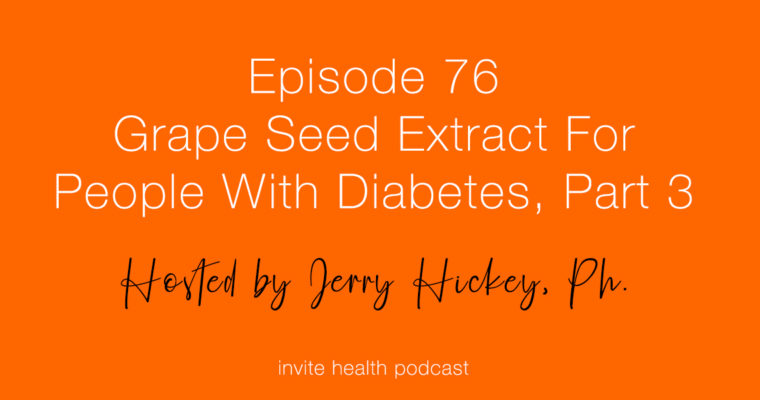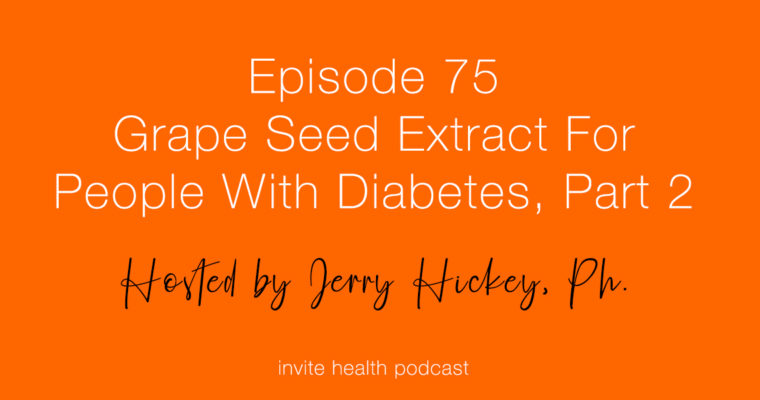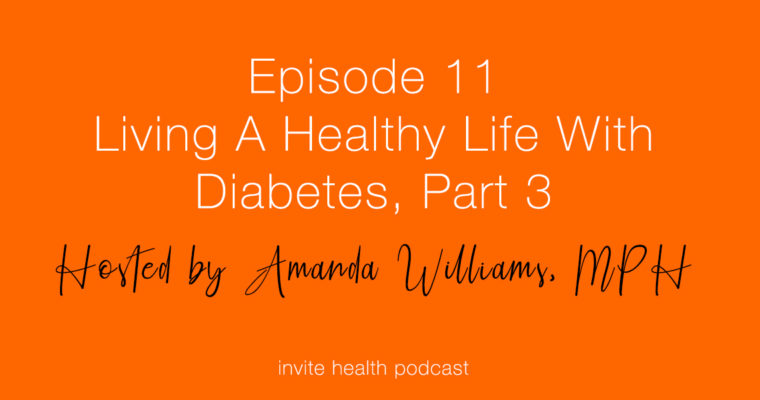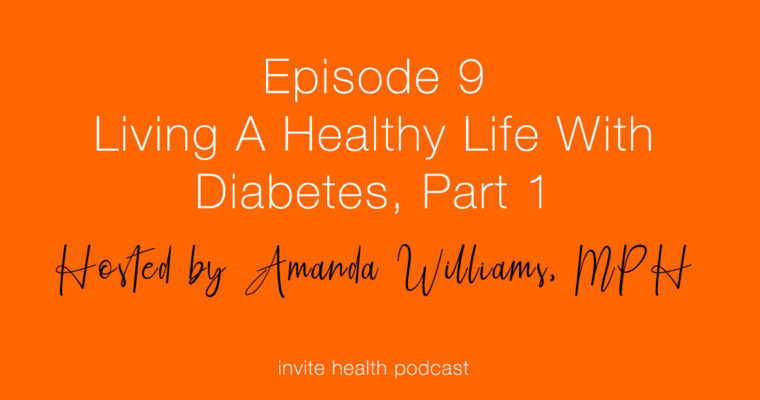Invite Health Podcast, Episode hosted by Jerry Hickey. Ph
Subscribe Today!
People with Diabetes have many issues related to inflammation. Comorbidity is a term that refers to diseases and conditions caused by the original disease. Diabetes has numerous comorbidities. Grape seed is a great supplement for people with diabetes. The pip (seed) of white grapes is loaded with very powerful antioxidants that reduce cellular inflammation. Collectively, these antioxidants are known as OPCs, oligomeric pro. Grape seed extract has GRAS certification – Generally Recognized As Safe for use by the American public, according to the FDA.
What is Metabolic Syndrome?
Metabolic Syndrome is a health disaster but it can be helped, especially with Grape Seed Extract. This is a cluster of conditions, including elevated blood pressure, elevated blood sugar, high cholesterol, obesity, elevated triglycerides, fatty liver, plaque developing the arteries, inflammation developing in the arteries, elevated uric acid, chronic kidney disease and eye issues. This is why this condition will shave years – perhaps decades – off of your health and your lifespan.
The Impact Uric Acid Has On Your Body. Listen Now >
Initially, animal studies demonstrated that Grape Seed Extract does many things for people with diabetes. Diabetes effects the heart, blood vessels, kidneys, the liver, the eyes, the brain, nerves. In people with Metabolic Syndrome, diabetes and pre-diabetes, Grape seed extract has been shown to help lower blood sugar, blood pressure and improve blood flow and the health of your arteries and more.
Clinical Research
The Diabetes and Endocrinology Department at Queen Alexandra Hospital in England published a study in the journal Diabetic Medicine where researchers studied obese patients with diabetes, who are at high risk of heart disease. Participants were given Grape Seed Extract (600mg) everyday versus placebo. Grape seed extract reduced fructosamine within two weeks. This is a quick measure of blood sugar; normally, people with diabetes prick their fingertip everyday to take a little blood and check their sugar to give them an indication of the measure of their blood sugar. Fructosamine is a little better, because it gives you a two week panoramic view of your average blood sugar. So, Grape seed was improving blood sugar very quickly in this study. It was also shown to reduce inflammation in the participants body.
Why you should test your inflammation using a hs-CRP Blood Test >>
The Journal of Agricultural and Food Chemistry from Oregon State University compared a prescription drug – a sugar blocker called Acarbose – to Grape Seed Extract. Acarbose is given before meals and it bonds to a family of enzymes called Alpha-amylase that breakdown carbohydrates and you absorb less sugar from the meal. If you absorb less sugar and slower, it is easier for someone with diabetes or pre-diabetes to control their blood sugar levels. The study found that Grape seed extract was stronger than the prescription for blocking this enzyme and it also blocked the second family of sugar blockers called alpha glucosidase.
So, taking a Grape Seed Extract – 100mg to 300mg – before a meal with a glass of water is going to reduce your absorption of sugar. Now, this extract has not been studied for weight loss to my knowledge but obviously, if you absorb less sugar that will block calorie absorption which should help you lose some weight. But studies have shown that it helps control blood sugar levels, as seen above.
Pharmacognosy Magazine published a small study of healthy men and women who were given Grape Seed Extract at both 100mg and 300mg before a high carbohydrate breakfast, which included a sugary drink, six pieces of white bread with sugary jelly. When participants were given Grape Seed extract, it strongly reduced the absorption of sugar following the high carbohydrate breakfast.
The University of Alberta published a study in the Journal Phytotherapy Research – a review of 50 human clinical trials. It is a meta-analysis of 50 studies. Grape seed extract was shown to have a significant impact; improving fasting blood glucose, total cholesterol, reduced bad cholesterol, reduce triglycerides. and reduced inflammation in the heart.
In Part 2, we will be looking at how Diabetes impacts your body, including eye health, plaque and more. Stay tuned!
Thank you for tuning in to the Invite Health Podcast. You can find all of our episodes for free wherever you listen to podcasts or by visiting www.invitehealth.com/podcast. Make sure you subscribe and leave us a review! Follow us on Facebook, Twitter and Instagram at Invite Health today. We’ll see you next time on another episode of the Invite Health Podcast.









